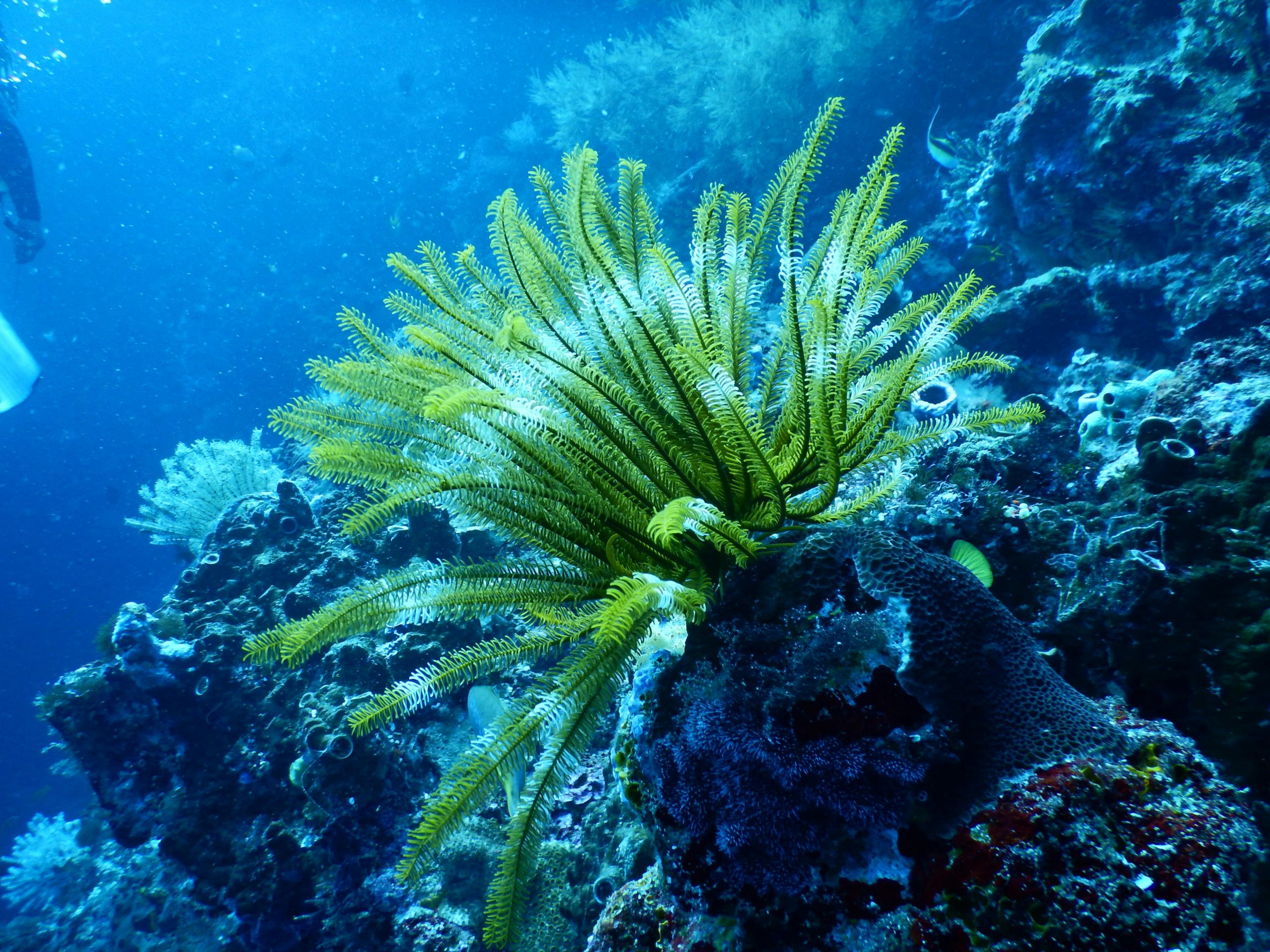Table of Contents
![]()
Introduction
Coral reefs, often referred to as the “rainforests of the sea,” are some of the most diverse and vibrant ecosystems on the planet. These underwater structures, built by tiny coral polyps, play a crucial role in marine biodiversity and provide habitat for countless species. Their breathtaking colors and complex formations not only draw scientists and conservationists but also thrill divers and snorkelers. This article explores the most stunning coral reefs around the world, highlighting their beauty, ecological significance, and the threats they face.
What Are Coral Reefs?
Composition and Structure
Coral reefs are primarily composed of calcium carbonate structures produced by coral polyps. These tiny, soft-bodied animals live in colonies and secrete hard skeletons that accumulate over time, forming the reef. Coral reefs are categorized into three main types:
- Fringing Reefs: Directly attached to a shore and separated by shallow water.
- Barrier Reefs: Parallel to the coastline but separated by deeper water.
- Atolls: Ring-shaped reefs that encircle a lagoon, often formed from volcanic islands.
Biodiversity Significance
Coral reefs are vital ecosystems, supporting approximately 25% of all marine species. They provide essential habitat for fish, invertebrates, and other marine organisms, contributing significantly to global biodiversity. Additionally, reefs offer critical resources for human populations, including food, coastal protection, and tourism opportunities.
Factors Contributing to Coral Reef Beauty
Coloration and Patterns
The stunning beauty of coral reefs can be attributed to the diverse species of coral, each exhibiting unique colors and patterns. The vibrant hues are often the result of symbiotic relationships with algae, known as zooxanthellae, which live within the coral tissues and contribute to their coloration.
Marine Life Diversity
Coral reefs are teeming with life. The intricate structures provide shelter and breeding grounds for various fish species, mollusks, and crustaceans. The dynamic interactions among these organisms create a rich tapestry of life that captivates anyone who explores these underwater wonders.
Unique Geological Features
Beyond their biological diversity, coral reefs exhibit unique geological features, such as underwater canyons, caves, and formations that enhance their visual appeal. These features are the result of complex geological processes and provide varied habitats that support different marine species.
The Most Stunning Coral Reefs Around the World
Great Barrier Reef, Australia
The Great Barrier Reef is the largest coral reef system in the world, stretching over 1,400 miles along the northeastern coast of Australia. This UNESCO World Heritage site boasts an incredible diversity of marine life, including over 1,500 species of fish and 400 species of coral. Its sheer size and vibrant ecosystem make it one of the most iconic coral reefs globally. However, it faces significant threats from climate change, pollution, and coastal development.
Belize Barrier Reef, Belize
The Belize Barrier Reef is a UNESCO World Heritage site and the second-largest reef system in the world. Notable for its stunning Blue Hole, a giant marine sinkhole, this reef is home to a rich diversity of marine life, including manatees, sea turtles, and vibrant tropical fish. Conservation efforts, including sustainable tourism initiatives, aim to protect this vital ecosystem from the impacts of overfishing and pollution.
Raja Ampat, Indonesia
Raja Ampat is renowned for its extraordinary biodiversity, housing more than 1,500 species of fish and over 600 species of coral. Located in the Coral Triangle, this remote archipelago boasts pristine conditions and some of the most stunning underwater landscapes in the world. Sustainable tourism practices are vital here, ensuring that both the environment and local communities benefit from this natural treasure.
Red Sea Coral Reef, Egypt
The Red Sea is famous for its crystal-clear waters and vibrant coral reefs. The reef system, particularly around sites like Sharm El Sheikh and Hurghada, is home to a variety of marine species, including colorful reef fish and unique invertebrates. While tourism significantly contributes to the local economy, it poses challenges, necessitating careful management to protect these ecosystems.
Maldives Coral Atolls
The Maldives is known for its stunning atolls, which are home to diverse coral reefs and a wide array of marine life. The region’s rich biodiversity includes sharks, rays, and vibrant fish species. However, the Maldives faces significant threats from climate change, with rising sea levels posing a risk to both the reefs and the islands themselves.
Palau, Micronesia
Palau is celebrated for its breathtaking coral reefs and innovative conservation programs. The country’s commitment to protecting its marine environment has made it a model for sustainable tourism. The waters around Palau are rich in biodiversity, featuring unique species such as the Palauan jellyfish, which attracts snorkelers and divers from around the globe.
Threats to Coral Reefs
Climate Change
Climate change is one of the most significant threats to coral reefs. Rising ocean temperatures lead to coral bleaching, where stressed corals expel their symbiotic algae, resulting in a loss of color and vitality. Ocean acidification, another consequence of climate change, decreases the availability of calcium carbonate, making it harder for corals to build their structures.
Pollution
Pollution from agricultural runoff, plastics, and untreated sewage poses severe risks to coral health. Nutrient loading can lead to algal blooms that smother corals, while plastics can cause physical harm and degrade water quality.
Overfishing
Overfishing disrupts the delicate balance of marine ecosystems, leading to declines in fish populations that are vital for coral reef health. Unsustainable fishing practices can damage coral structures and reduce biodiversity.
Invasive Species
Invasive species, such as the crown-of-thorns starfish, can devastate coral populations by preying on them. Effective management strategies are essential to mitigate the impact of these species on vulnerable reefs.
Conservation Efforts
Global Initiatives
Numerous global initiatives aim to protect coral reefs. Marine protected areas (MPAs) are established to conserve marine ecosystems, while international agreements, such as CITES, regulate trade in endangered species.
Local Community Involvement
Engaging local communities in conservation efforts is crucial. Sustainable fishing practices and eco-tourism programs can help balance economic needs with environmental protection, fostering a sense of stewardship for local reefs.
Research and Education
Scientific research plays a vital role in understanding coral reef ecosystems and their responses to environmental stressors. Education programs raise awareness about the importance of coral reefs and promote conservation actions among communities and visitors.
Conclusion
Coral reefs are among the most stunning and biodiverse ecosystems on Earth. Their vibrant colors, unique formations, and critical ecological roles make them invaluable not only to marine life but also to human societies. However, the threats they face from climate change, pollution, and overfishing cannot be overstated. It is crucial for individuals, communities, and governments to come together to protect and preserve these underwater wonders for future generations. By fostering awareness and encouraging sustainable practices, we can ensure that these breathtaking ecosystems continue to thrive.
Share This





Be the first to comment